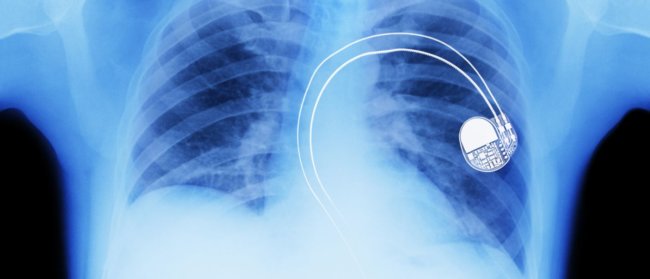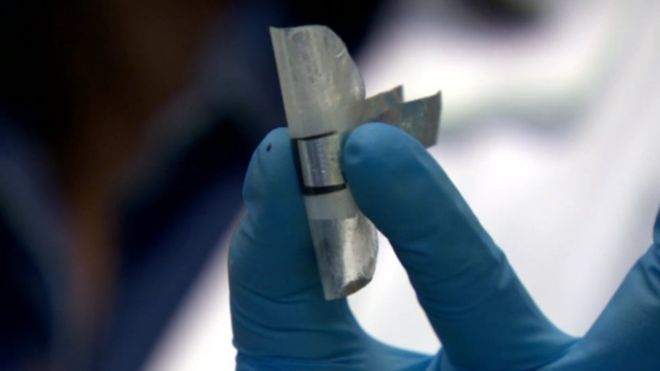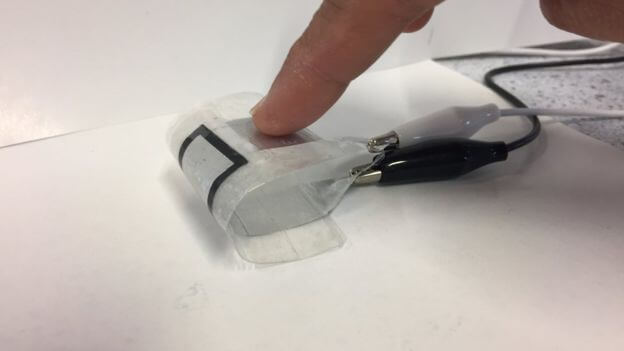
Irish scientists from the University of Queens in Belfast has developed a new flexible organic battery that promises a serious step in the development of medical implants. Currently, medical devices such as pacemakers, use solid batteries, made of metal, which makes them not very comfortable. In addition, these batteries do not have the feature of decomposition, so through time it is necessary to conduct a second operation on the patient to remove the battery and replace it with a new one.
New flexible organic battery not only able to keep three times more charge in comparison with the commonly used batteries, but also offers very useful from the viewpoint of environmental properties, as it can decompose. While this particular device is not exposed to leaks of energy, and it is made of non-combustible material. In addition, for patients its use will be somewhat more comfortable, as the battery has a flexible property, and can therefore change its shape with the movement of the human body.

Dr. Gita Srinivasan, head of the research Laboratory of the research center of ionic liquids at the University of Queens (QUILL) said in an interview with the BBC about how flexible supercapacitor could become part of new medical devices.
“Medical devices like pacemakers and defibrillators, as a rule, consists of two implantable parts. One is attached directly to the heart, while the second contains metal solid battery that is implanted under the skin of the patient,” says Dr. Srinivasan.
“The implant under the skin connected by wire with the main unit and may cause patient discomfort as it can RUB against the subcutaneous layer. For this reason it was necessary to develop a new and easy to use battery. The perfect solution was to make them flexible so they can change its shape and adapt to the shape of the body.”
As noted above, the new battery is safer than currently used, as it does not contain any combustible materials and, therefore, has no risk to explode. It is not only flexible, but also very light, which opens the way for her to use in other consumer electronics, such as flexible laptops or phones, where is currently also used solid-state battery.
Moreover, the current battery is very costly to recycle because they contain toxic materials. Organic same battery over time will decompose without causing any harm to the environment. A new battery developed by a team of Srinivasan used biomaterials such as cellulose, not expensive and not degradable metals or semiconductors, as usual. It is also worth noting that, despite the ability of samorazdrazheniya, battery is completely safe for the human body, as start to break only when the temperature reaches 270 degrees Celsius.

Dr. Srinivasan in an interview with BBC expressed confidence that with the right financing by her and her team’s battery will be easy to commercialize and begin to use in different consumer and medical electronics in the next five years.
Researchers have created a flexible organic battery for medical implants
Nikolai Khizhnyak